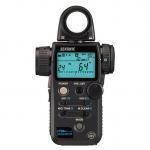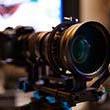Search the Community
Showing results for tags 'grading'.
-
Now I know it's not a popular camera body for many valid reasons, and that it may be away from the budget of many casual film-makers, but I've been using the C100 a lot recently, and wondered if anyone had any tips to swap. I've also been programming some custom picture styles for this and C300 based on highly gradable modern film stocks. If anyone is interested in such a discussion let's get stuck in! Let me know how you use it and find it...
-
Hello, I am new to this forum (first post) and beginner filmaker and I will need advice ... Last June I started shooting for my documentary project on the local natural heritage, for now with my own money, so my gear is rather light... I'm shooting with a Canon Eos 70D DSLR, outdoor, and i'm shooting the natural spaces of a valley (along a river). At the start I wanted to film in RAW with Magic Lantern, but with my 70D i'm stuck in 720p (for a continuous recording), so finally i've shot in a compressed way, Mpeg-4 All-I 8bit 4:2:0 @1080p 29.97fps with a picture style (EOSHD C-LOG (0,-4,-4,2)) + Vari ND Filter, hoping to get myself out of it even in post-prod ... But here the quality of the images, in a context of shooting outdoors in shaded places very contrasted (...), do not satisfy me ! So I would like to have advice to achieve a higher quality outdoor shots (natural light)? To illustrate my purpose you can see these few shots that I graded in Resolve + corrections in After Effects: https://vimeo.com/alexandrewebercom/riviereardeche The third shot is particularly ugly ... - Have I "pushed" the mpeg-4 too far by color grading it or is it simply the limitations of this compression? - How do I do with hyper contrast scenes (it was about 14h when shooting)? - Am I condemned to film in RAW whatever the chosen camera (to be able to uncork the blacks or to recover in the whites in post-prod)? - Is it better that I under-expose or over-expose this type of scene? - Can you suggest gear/ configuration more suitable for my use: Camera, Raw / Prores, Log, external recording ... ? Thanks a lot !
-
Guys, I'm looking for some really good training material for advanced color grading that focuses on the creative aspects rather than technical stuff (how to use Resolve, etc.) and on color grading rather than color correction. I looked around and found some promising videos on lynda.com, but wanted to check here before signing up. Suggestions?
-
The official EOSHD thread for discussion of grading and colour correction. Techniques, software, codecs, etc.
- 104 replies
-
- grading
- colour correction
-
(and 1 more)
Tagged with:
-
Two journeys, a plane into Macau, and the ferry to Kowloon, as the storm clouds come in. Panasonic G6, 20mm 1.7, neat video NR, ImpulZ LUTs Unfortunately the noise reduction means that banding is evident in the vimeo stream. It's a bit better if you download it. It got a nice review on Coconuts Hong Kong, which has never happened to me before. If you'll forgive me quoting my own good press! http://hongkong.coconuts.co/2014/08/08/video-fall-love-hong-kongs-typhoon-season-romanticised-wet-weather-treat
-
Hi there, I am primarily a stills photographer and so am very comfortable with the Lightroom sliders for changing the hue, saturation and luminance of individual colours (ie. this). I also quite like the Clarity slider. When it comes to video grading in Premiere Pro / After Effects, I am ok with the control I have over highlights, shadows, etc. However I can't find any effect with similar colour controls to Lightroom. Most of it is either sweeping changes to the whole image or individual channels (R/G/B). Can anyone point me to what I'm looking for? :)
- 9 replies
-
- grading
- color correction
-
(and 3 more)
Tagged with:
-
Personally moving on from camera discussions and now focussing on how to get the best grade from what I have. I know that it's preferable to start with a raw source, or at least flatly shot source if you don't have raw capability... but what I don't get completely, has to do with film emulating LUTs vs just doing all the adjustment/grading yourself from scratch. Have done several tutorials and can get a pretty decent final image with just using the color tools in FCPX. But, then I drop various LUTs on top of that and it often looks even better! Logically, it seems it'd be best to just get good at dialing in your look from scratch and not fooling with LUTs at all, but there are looks I've seen after applying various LUTs that I can't even fathom getting on my own. A lot of Brandon Li's footage lists the Osiris LUT for his MK3 raw footage, and some of his RX10 footage as well. Is it a waste of money buying something like the Osiris LUT package for use with a Nikon D5300 that isn't raw source? Or, am I better off just spending the time to get the color grade/style looking the way I want without using LUTs at all? Or, is it best to get the basic levels adjusted in FCPX for a generally good look, then stylizing with LUTs like Osiris after the fact? Or, applying the LUT style you want to start off with, and fine tuning the look via the color tools? Sorry for all the questions, but it feels redundant using both the builtin FCPX color tools AND the various LUTs. (PS. I know about Davinci Resolve, etc. but want to stick with getting it with just FCPX for now)
-
Hi, Experimenting with the D5300 before I take it on a little trip to Mexico. Trying to get something close to a decent look before I leave, and with minimal gear. Have decided that the 18-200mm VR lens, while not perfect, is close enough to my manual glass to sacrifice some shallow DOF for the benefits of the VR stabilization. The trade-offs are worth having a wide range, macro, AF for stills, VR for handheld, etc. So, now I'm trying to get the in camera settings where I want them to be for grading in FCP X. I've been playing with the LUT Utility with test footage I shot using the Flaat 10 profile, and a modified Standard profile. I didn't think I really needed the LUT Utility or any LUTs to start with... however, I just graded the same footage the best I could by eye and several different shots. Then used the Fuji 3513 to Rec709 at about 50% and miner tweaks to the exposure, etc. Added a little bit of grain and sharpened. Consistently, despite my best efforts, the footage using the LUTs comes out better and closer to natural film stock. I can get close starting with the Teal + Orange Look built-in to FCP X, but it's always better using the LUT. I'm sure a good colorist wouldn't need the LUTs but it's just so much quicker to get it right if you're a relative noob like me. ;) Anyway, what I've figured out is that I get better results with a tweaked Standard file than I do the Flaat 10 one. I don't think the LUTS that come with LUT Utility are the best for the Nikon, but they're not bad. I've seen really nice stuff from Brandon Li using Osiris, but it's mostly been from cameras like the Sony RX10, 5D3 & BMPCC which I think that LUT is particularly tuned to. Can anyone using Nikon here, recommend some LUTs that you find most appealing? Not going for Film Convert at the moment. Sticking with LUTS and tweaking my own profile.
- 13 replies
-
- luts
- color correction
- (and 4 more)
-
Hey all, I've been messing around with the demo for this program, and I must say, it's pretty impressive....As an absolute novice at grading, it can certainly get me the look I'm after without much fuss. Too bad they only have a plugin version for the PC. [url="http://www.filmconvert.com/"]http://www.filmconvert.com/[/url] The company said they've got hold of a GH2 and will be looking at doing a LUT for it... (can't recall where I read it) I'd love to see Andrew do a full-fledged review and put it though it's paces.... Anyone else have any thoughts on this?
-
Here is my test I did today. There are a few notes to be aware of: 1) There is moire evident when set at 0 (roof of the pavilion). At -5 there is none, although the compression of youtube introduces moire. 2) Excessive sharpening in post is akin to sharpening in-camera by re-introducing moire. Not only that but it also exacerbates banding as well. The last shot of the sunset, you can see a sort of "pulsing" wave above the sun. This is not present in either the 0 or -5 setting, although you can see some banding in the 0 setting. 3) There is a lot of noise at -5, but there's more detail too. Proper noise reduction will help. 4) Contrast isn't easy to fix. I made a bunch of other shots, however I wasn't able to match them. Never forget we're dealing with an 8 bit codec. You can grade the footage, but only so far. And trying to fix things in post could result in worse problems. The banding was especially surprising, and it looks worse in the ProRes version. I think it best to find the right compromise for the type of shooting you do. And you have to get your exposure and contrast as close to final version as possible. The GH3 is better than the GH2, and you have some room to adjust, but it still isn't a whole lot. http://youtu.be/qxxFe_y-2y4
-
***I sent you an email via the contacts page and after I sent it I saw it said write to the forums for a faster response. Sorry about that*** I received some KineRaw S35 footage and I did some grading test. Edited in Adobe Premiere Pro CS6. I only had to download the CineForm Decoder for it to play nice with Premiere. Only used the LUT provided by Kinfinity, Magic Bullet Misfire Post contrast, and Magic Bullet Looks in the grading process. I provided download links to the video so you can see the highest quality. Also links to some tiff screen grabs. Hopefully Andrew will be able to check it out and give it his thoughts. Please note that I'm not a colorist at all. Everything located here: [url="http://flopitworks.com/2012/07/15/kineraw-s35-test-still-in-production/"]http://flopitworks.c...-in-production/[/url]








